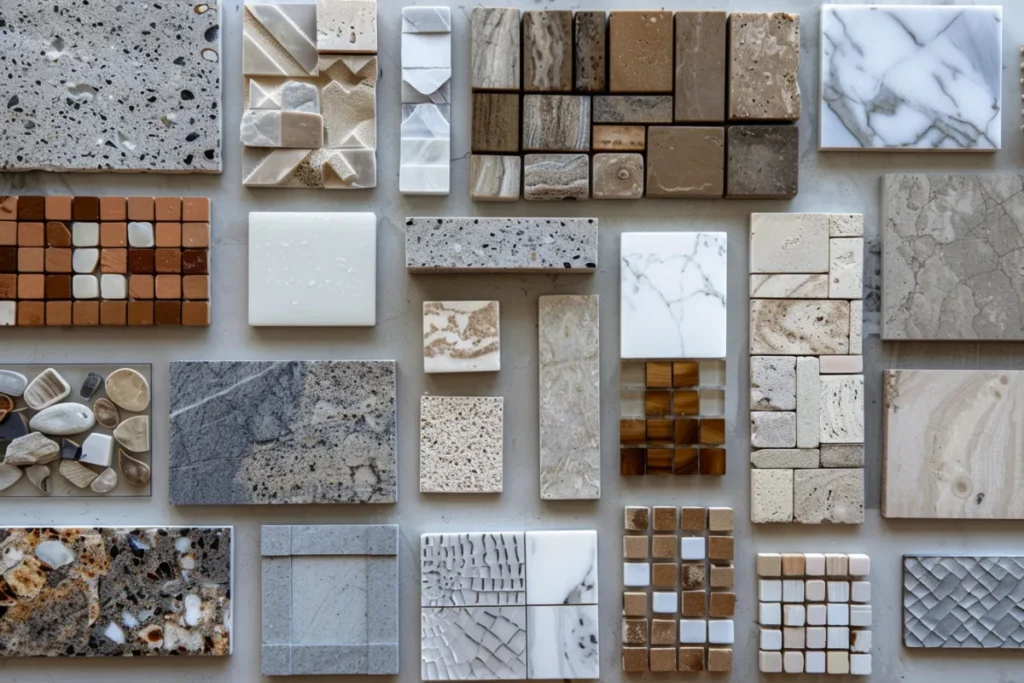Loading... (Warehouse Local Time)
Tiles have been a staple in architecture and design for centuries — but with so many styles, materials, and finishes available today, choosing the right tile for your project can be overwhelming. Whether you’re remodeling a kitchen, upgrading your bathroom, or planning an outdoor patio, understanding what tile is and which type is right for you is key to success.
Tile is a hard, durable material used for covering surfaces like floors, walls, and countertops. Tiles are typically made from ceramic, porcelain, natural stone, cement, metal, or glass, and are available in various shapes, colors, textures, and finishes.
Tiles are prized for their:
Durability
Water-resistance
Low maintenance
Aesthetic versatility

Porcelain is dense, water-resistant, and incredibly durable. It’s perfect for:
High-traffic areas (hallways, kitchens)
Outdoor spaces (patios, entryways)
Bathrooms and laundry rooms
Key features:
PEI hardness rating of 4 or 5
Mimics natural stone or wood
Scratch- and moisture-resistant
Ceramic tiles are more affordable and easier to cut. Ideal for:
Backsplashes
Shower walls
Residential floors
Glazed ceramic is stain-resistant; unglazed offers a natural matte finish.
Popular styles: Subway tiles, terracotta, hand-painted ceramic murals.
Includes marble, travertine, slate, limestone, and granite. Perfect for luxurious or rustic designs.
Marble: Elegant, classic, best for bathroom walls or accent floors
Travertine: Earth-toned and textured, great for non-slip outdoor flooring
Slate: Rugged and resilient, ideal for mudrooms and hallways
👉 Natural stone tiles often need sealing and careful maintenance.
Mosaic tiles are small, intricate tiles often used in:
Shower niches
Bathroom walls
Kitchen backsplashes
They usually come pre-arranged on mesh sheets for easy installation.
Bold and trendy, these are thicker and heavier than other tiles but perfect for:
Artistic statement floors
Accent walls
Modern patios
Eco-friendly and hand-crafted, but require sealing to avoid staining.
Stylish and modern, metal tiles are commonly used in:
Kitchen backsplashes
Contemporary bathrooms
Feature walls
Peel-and-stick options make DIY installation easy, but they can dent or scratch.
When selecting tile, consider:
Room Type – Moisture-prone areas need non-porous materials like porcelain or glazed ceramic.
Slip Resistance – Use textured tiles or natural stone in wet areas.
Durability – For floors, choose tiles with a PEI rating of 3 or higher.
Size & Scale – Large tiles make small rooms look bigger; mosaics add detail and texture.
Style & Color – Match your tile to your design vision: warm tones for cozy, light colors for airy spaces.
Always buy 10–15% more tile than needed to account for cuts and waste.
Use a tile calculator to avoid over- or under-buying.
Sealing natural stone prevents stains and extends life.
Grout color can dramatically affect the final look — contrast for boldness, match for seamlessness.
Choosing the right tile starts with understanding what tile is, what materials are available, and how they perform in different spaces. From classic marble to contemporary metal, there’s a perfect tile for every home and every project.
Whether you’re renovating a kitchen backsplash or designing an elegant walk-in shower, Stone Market USA has the right tile to bring your vision to life. Explore our full collection and get inspired today!
👉 Need help? Contact our tile specialists